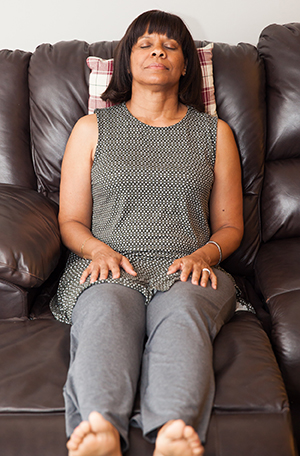Certain changes may help you manage Ménière’s disease. Some of these changes are minor. Others may require more effort and dedication, such as lowering stress.
Reduce your stress
Stress doesn’t cause Ménière’s disease, but it may cause symptoms or make them worse. Ask your health care provider how to manage stress. These tips can help you get started:
-
Pay attention to what makes you feel tense. Note how your body responds to tension. “Listen” to your body for signs such as stomach upset, tensed muscles, clenched teeth, or other symptoms.
-
Avoid things that may increase your stress and affect your health. These include unhealthy eating habits, too much screen time, smoking, sleeping a lot or too little, and drinking too much alcohol or caffeine.
-
Talk with your provider about starting a regular exercise program. Exercise is a great way to reduce stress. Include an aerobic activity such as walking, jogging, bicycling, or swimming in your exercise program. Also include exercises to strengthen muscles. You may also need to make some changes to your diet.
-
Take time out from your daily errands and chores to do things you enjoy and find relaxing. Don’t look at relaxation time as wasted time. Instead, think of it as an investment in your health.
-
Ask your provider about visualization techniques, deep-breathing exercises, progressive muscle relaxation, stretching, yoga, prayer, meditation, and biofeedback. These are all ways to help reduce stress.


